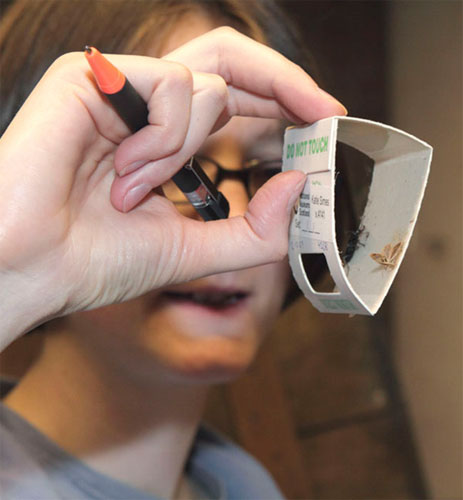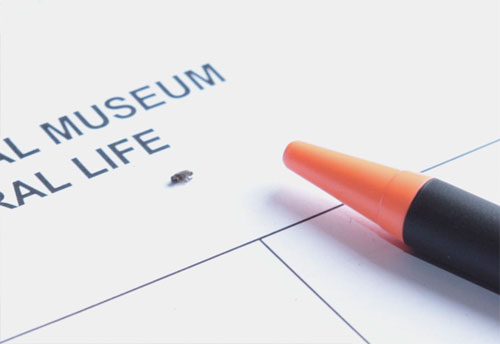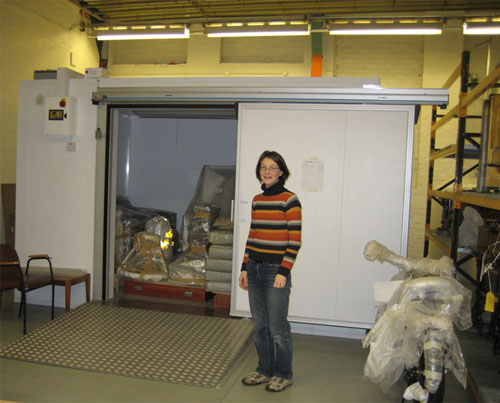My official job title is Preventive Conservation Officer, but my friends call me the Bug Lady. That’s because one of the things I’m responsible for is all the insect traps in the museum. It’s my job to go round and check them once every three months to see if there are any insects.

So what am I looking for? My public enemy number one is the clothes moth. You can see one on the trap above. You may have seen them in your home too. They’re small (less than 1cm in length), and golden coloured. They will eat your clothes, as the name suggests, but may also eat your carpets. Unfortunately, unlike some other moths, they don’t fly to the light; in fact they prefer the dark. This means that your wardrobe, or a museum store cupboard, is an ideal home for them.
Another thing we have to look out for is woodworm, which is in fact a beetle, called furniture beetle. It’s the larvae that do the damage as they munch their way through wooden objects. Then when they’ve pupated into adults they leave the wood and we see the characteristic holes which they fly out of.

What can we do? If we find an infested object then we put it in our big freezer. Three days at -30°C kills any eggs, larvae and adult insects. But we have to wrap everything in plastic first to protect it from changes in humidity.

Once an object has been treated we can’t put it back until the place it came from has been made pest free. We usually do this by cleaning. Then we continue to monitor and keep our eyes peeled for further unwanted visitors.
